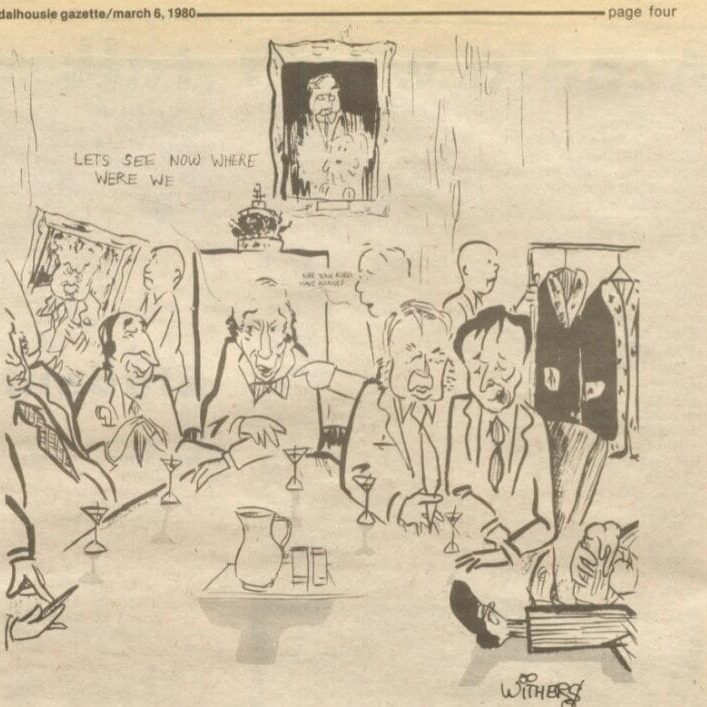
This year is of particular importance for both Dalhousie University and the Dal Gazette. Each institution has hit a milestone.
Dalhousie reaches 200 years and the Gazette 150. Thanks to the Dal Library’s digital archives the 150 years of Gazette publishing is available for anyone to read. As a neat remembrance activity, the editors of the Gazette decided to dig into the archives and pull stories that seem cool, or relevant to today, or whatever they thought was interesting.
It’s interesting how little has changed at Dal. The complaints about the school and the education the students are receiving seem to have started in the early 1900s. The complaint back then was that the students were too young to be getting their money’s worth at Dal. They hadn’t lived enough at 16 to appreciate a university education. So why is Dalhousie profiting off of this, knowing that it couldn’t educate students so young?
In the 1920s and 30s came the complaints that the university just wasn’t teaching students how to learn and think like it used to: it seemed like Dalhousie was trying to have more students and ignoring the quality of its education.
In the 1950s there was briefly a worry that Dalhousie was turning people into radical communists. What with all the communist professors.
After that, there has been a frequent thread of complaint.
Dalhousie is trying to pump money into the money-making faculties and ignoring others, like Arts. It’s been a concern for the past couple of decades. One that still exists today.
Professors in the 1980s fought not to have a set retirement age. The belief then was that this would allow Arts professors to hold on to positions that would go to engineering as soon as they retired.
Today, Dal is facing a strike for the same reason. One of the complaints levied against the school is that when a professor retires from a department like Philosophy, their salary goes to a ‘profitable’ faculty like Engineering, or to the school’s administrative costs. These profs are either not replaced, or replaced with part-time profs.
The cuts are impacting the quality of education negatively.
The dip in quality as a student who has had a bit of life experience is noticeable. I took a class in first-year where the professor outlined the syllabus at the start of every class, and how the schedule would be impacted by the material covered. He spent so much time doing this each class, he impacted how much he was able to teach, which meant he had to spend time at the beginning of the next class, which meant he could teach less. Which meant:
It was brutal. He covered little. For the amount of effort, and reading (none) I put into that class I should have gotten a D. Maybe a C-. At least that’s how much is remembered of that class today. But no, final mark: A-.
This class isn’t an outlier. There are a lot of students who pay a lot of money for a terrible return on investment.
Especially if they are in the Faculty of Arts. That’s not to say it’s the professor’s fault, but how can they succeed if they are not given the resources to do so?
That’s also not to say that there are not phenomenal professors at Dalhousie. Michelle Coffin, for example, is probably one of the best teachers of Political Science in the country. Dalhousie only has her on part-time. Why don’t professors of Coffin’s caliber have tenure if Dalhousie cares about the quality of education it provides?
At any rate, congratulations Dalhousie.
A 200-year-old institution is an impressive achievement. It’d be far more impressive if the quality of education in all faculties grew as much as the student population has in the same time.






